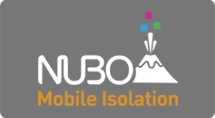Ever thought of inviting Rex to your next strategy brainstorming session? Better keep up with the latest business trends, because ‘man’s best friend’ may soon become an essential part of the workplace.
Google, Tumblr, Zynga and Amazon are just a few of the progressive organizations that believe in the value of bringing your dog to work. What are the benefits for you and your employer? Are there risks?
Your creative mind- and how stress kills it
The stats: only 10% of people do their best thinking at work. So what’s blocking our creative faculties from flowing at the office? According to David Rock (co-founder of the NeuroLeadership Institute), technology, multitasking, and a competitively-demanding work culture can all contribute to the “noise” in our brain, and consequently crush creativity. We must “quiet” our mind in order to promote a curious, open-minded, and interested mind set. How? By reducing stress. Stress makes it harder to think outside of the box, be agile, and respond to sudden change.
The real cost of employees’ personal stress
“Stress.. cost us millions of dollars each year, not only in productivity but also in terms of resources.” says Dr. Randolph T. Barker (Professor of Management- VCU School of Business). Stress is a major contributor to employee absenteeism and burnout.
Lassie to the rescue
Good news! Recent research confirms the benefits of bringing your beloved Rex to work. It appears that patting your doggie lowers your blood pressure and pulse rate, improving your cardiovascular health. In addition, a dog-inclusive work environment is healthier in terms of forcing owners to take breaks, to air their mind, and to move their butts off that seat. There’s no doubt that hanging out with one’s furry companion in the office increases employee satisfaction. So, bringing your best friend into work ultimately saves your company money by decreasing stress, and in turn, boosting your creativity and productivity as well as elevating your work satisfaction.
Beware the beast among you
But what are the risks of bringing a foreign species into your office? Well, your neighbor on the other side of that flimsy cubicle wall may not appreciate Rex’s uninvited guests- the fleas, lice, and allergens that don’t offer any value in reducing stress or boosting productivity. And then there’s the joy of dribble and accidents on the carpet.
K-9 as KPI?
Assuming your co-workers can put up with these risks, canine presence at work certainly offers significant, tangible value for employees and companies. Could man’s age-old ‘best friend’ then become recognized as a core criterion for business success? Will Rex serve as a modern KPI for enterprise ROI? Anthrozoology (the relatively new field of human-animal interactions), is gaining clout in colleges, organizations, and journals across 10 countries and promises to affect social norms in and out of the workplace.
Bring Your Own Dog- revolutionary or evolutionary?
It seems that the leaders among us have always understood the true benefits of a canine-inclusive work policy.
The United States Congress has welcomed doggies into its high-pressured ‘office’ since the 1800s.
Many of today’s distinguished congress dogs are named after their home states. Evidence of their stable lineage over the past 2 centuries can be seen on the House of Congress carpets that bare the faded yellow marks of prestigious ancestors.
BYOD- the evolution of workplace conditions: merging your private and working space
Both BYO-Dog and BYO-Device promise a more flexible, progressive working environment that blurs the boundary between our personal and public worlds. BYO-Device allows you to personalize and adapt your work experience to fit in with your own technology and preferences in and out of the office. It also enables you to retain access to your personal matters while at work. The value of employee self-empowerment and satisfaction cannot be underestimated in terms of their impact on productivity. BYO-Dog offers a similar perk in terms of personalizing your work conditions, but unlike BYO-Device, doesn’t pose a security risk to the business: Rex’s allergens won’t contaminate your IT department’s precious firewall.
So, if the boundary between our private lives and work environment is indeed blurring, and we are heading for more enlightened, personal workplace conditions, will this in turn have the adverse effect of greater intrusion into our personal lives by work?










